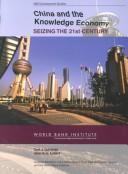| Listing 1 - 4 of 4 |
Sort by
|
Book
Year: 2001 Publisher: Washington, D.C., The World Bank,
Abstract | Keywords | Export | Availability | Bookmark
 Loading...
Loading...Choose an application
- Reference Manager
- EndNote
- RefWorks (Direct export to RefWorks)
July 2001 - If a developing country government is not good at providing public services such as health care, education, and social protection, would NGOs be better at doing so? What advantages do NGOs have over for-profit providers of publicly funded services? And considering the importance of donor funding, which is better for delivering such services, an international NGO or a grassroots NGO? Jack presents two descriptive models of nongovernmental organizations and poses normative questions about public policy toward NGOs. In situations in which optimal government intervention in a distorted or inequitable economy employs an NGO-like body, he considers which kinds of NGO might be used. First, in many developing countries NGOs participate in the delivery of what are essentially private goods-in particular, health care and education. In an economy without NGOs, there may be good redistributive and efficiency reasons for the government to provide these goods in kind. But if direct government provision of such services is ineffective or inefficient, when is contracting out to an NGO-like institution preferable to using a traditional for-profit firm? (Another way to frame this is to ask: What is the optimal taxation and regulation of private providers of publicly financed services?) NGOs also provide useful real and financial links with external donors. They are used to provide services the government favors and donors are willing to fund. In this model, the service provider is chosen to yield the best outcome for both government and donor. In this context, Jack compares an international NGO and a grassroots organization. It may be more efficient to transfer donor funds through an international NGO than through a local NGO, but when donor-government cooperation fails, a project implemented by an international NGO is effectively killed. If a project implemented by a local organization can limp along, this otherwise less efficient organization might be preferred. This paper-a product of Public Service Delivery, Development Research Group-is part of a larger effort in the group to understand the role of NGOs in delivering basic public services. The author may be contacted at wgj@georgetown.edu.
Bank --- Civil Society --- Debt Markets --- E-Government --- Economic Theory and Research --- Education --- Education for the Knowledge Economy --- Finance and Financial Sector Development --- Financial Literacy --- Governance --- Government --- Income --- Intervention --- Labor Policies --- Learning --- Macroeconomics and Economic Growth --- Microfinance --- NGO --- Organizations --- Outcomes --- Participation --- Policies --- Policy --- Poverty --- Poverty Alleviation --- Poverty Monitoring and Analysis --- Poverty Reduction --- Programs --- Projects --- Public Sector Corruption and Anticorruption Measures --- Quality --- Research --- Service --- Service Quality --- Services --- Social Development --- Social Protections and Labor
Book
Year: 2001 Publisher: Washington, D.C., The World Bank,
Abstract | Keywords | Export | Availability | Bookmark
 Loading...
Loading...Choose an application
- Reference Manager
- EndNote
- RefWorks (Direct export to RefWorks)
Happily, the revolution going on in the telecommunications industry is benign. Technological change and competition are making possible changes considered improbable even 15 years ago. The WTO Agreement on Basic Telecommunications Services created a new regime for the world market. Now we must pay close attention to regulatory fundamentals. Every country serious about introducing competition finds that the transition from monopoly to competition is both economically rewarding and laden with policy dilemmas. As a new century begins, we have an essentially new market for telecommunications. Digital technology forced a reexamination of the opportunity costs of protecting traditional telecommunications equipment and service suppliers. An inefficient market for telecommunications threatened competitiveness in the computer, software, and information industry markets. Meanwhile, after dislocations created by global stagflation through the early 1980s, developing countries became interested in privatization of state enterprises as a tool of economic reform-and state telephone companies were especially promising targets for privatization. Those countries began exploring options for allowing selective competition, as phone companies in major industrial countries began looking to foreign markets for new business opportunities. The WTO Agreement on Basic Telecommunications Services created a new regime for the world market. Now we must pay close attention to regulatory fundamentals: Low barriers to entry in the market for communications services; Effective rebalancing of rates for services during the market transition; Strong interconnection policies; The creation of independent regulatory authorities with the resources and power necessary to foster competition and safeguard consumer welfare. Cowhey and Klimenko assess how developing and transition economies have fared in profiting from changes in the telecommunications market. They also examine the policy challenges that remain, paying special attention to the global market and regulatory milieu fostered by the 1997 WTO agreement. They ask what this latest transformation has taught us about wise management of this vital part of the world economy's infrastructure. They focus on the economics of managing the transition to competition, the design of proper regulatory policies and processes, and the embedding of domestic telecommunications in the world market. This paper-a product of Trade, Development Research Group-is part of a larger effort in the group to help developing countries formulate negotiating positions for WTO talks. Mikhail Klimenko may be contacted at mklimenko@ucsd.edu.
Debt Markets --- Developing Countries --- E-Business --- Economic Policies --- Economic Theory and Research --- Education --- Education for the Knowledge Economy --- Emerging Markets --- Entry Barriers --- Equipment --- Finance and Financial Sector Development --- Future --- Global Market --- ICT Policy and Strategies --- Industry --- Information and Communication Technologies --- Interest --- International Financial Markets --- Macroeconomic Policy --- Macroeconomics and Economic Growth --- Market Access --- Market Efficiency --- Markets --- Markets and Market Access --- Opportunity Costs --- Option --- Options --- Private Sector Development --- Public Sector Corruption and Anticorruption Measures --- Public Sector Economics and Finance --- Regulatory Authority --- Regulatory Systems --- Tariffs --- Technology Industry --- Telecommunications --- Transition Economies

ISBN: 0792372964 1461356792 1461516897 Year: 2001 Volume: 23 Publisher: Boston Kluwer Academic
Abstract | Keywords | Export | Availability | Bookmark
 Loading...
Loading...Choose an application
- Reference Manager
- EndNote
- RefWorks (Direct export to RefWorks)
Scholars in the science and technology field have not collectively questioned, much less proposed, an agenda for policy makers. Now is an appropriate time for such an undertaking. First, there is a growing belief that the U.S. national research and development system, like that of many industrial nations, is changing due to global competitive pressures and advancements in information technology and electronic commerce. Second, industry's R&D relationship with the academic research community is changing not only because of the global competition but also because of alterations in the level of government support of fundamental research. As a result, policy makers will need to rethink their approaches to science and technology issues. This volume is a collection of essays by scholars about innovative policy in the knowledge-based economy. By knowledge-based economy we mean one for which economic growth is based on the creation, distribution, and use of technology. As such, innovation policy in such an economy must enhance the creation, distribution, and use of knowledge that leads to the creation, distribution, and use of technology. This volume considers elements of an innovation policy: innovation policy and academic research, innovation policy in electronic commerce, and innovation policy and globalization issues.
Information technology --- Technologie de l'information --- Economic aspects --- Congresses. --- Government policy --- Congresses --- Aspect économique --- Congrès --- Politique gouvernementale --- -Information technology --- -#SBIB:35H435 --- #SBIB:024.IO --- IT (Information technology) --- Beleidssectoren: economisch en werkgelegenheidsbeleid --- Conferences - Meetings --- Knowledge economy --- #SBIB:35H435 --- Technology --- Telematics --- Information superhighway --- Knowledge management --- Economy of knowledge --- Information economy --- KBE (Knowledge-based economy) --- Knowledge-based economy --- Economics --- Economic growth. --- Economic policy. --- Political science. --- Economic Growth. --- Economic Policy. --- Political Science. --- Administration --- Civil government --- Commonwealth, The --- Government --- Political theory --- Political thought --- Politics --- Science, Political --- Social sciences --- State, The --- Economic nationalism --- Economic planning --- National planning --- State planning --- Planning --- National security --- Social policy --- Development, Economic --- Economic growth --- Growth, Economic --- Economic policy --- Statics and dynamics (Social sciences) --- Development economics --- Resource curse

ISBN: 0821350056 9786610087334 1280087331 0585437394 Year: 2001 Publisher: Washington, D.C. : World Bank,
Abstract | Keywords | Export | Availability | Bookmark
 Loading...
Loading...Choose an application
- Reference Manager
- EndNote
- RefWorks (Direct export to RefWorks)
Economic policy and planning (general) --- Internal politics --- China --- S10/0251 --- S10/0330 --- S10/0760 --- S10/0835 --- S10/0700 --- S14/0454 --- Education and state --- -Information technology --- -Knowledge management --- -Technological innovations --- -Technology and state --- -State and technology --- Technology --- Endowment of research --- Science and state --- Breakthroughs, Technological --- Innovations, Industrial --- Innovations, Technological --- Technical innovations --- Technological breakthroughs --- Technological change --- Creative ability in technology --- Inventions --- Domestication of technology --- Innovation relay centers --- Research, Industrial --- Technology transfer --- Management of knowledge assets --- Management --- Information technology --- Intellectual capital --- Organizational learning --- IT (Information technology) --- Telematics --- Information superhighway --- Knowledge management --- Education --- Education policy --- Educational policy --- State and education --- Social policy --- China: Economics, industry and commerce--General works and economic history: since 1989 --- China: Economics, industry and commerce--Employment --- China: Economics, industry and commerce--Transfer of technology --- China: Economics, industry and commerce--Postal service and telecommunications: since 1949 (including E-commerce) --- China: Economics, industry and commerce--International economic relations (incl. development aid and problems, WTO) --- China: Education--Education: since 1989 --- Economic aspects --- -Government policy --- Government policy --- Economic conditions --- -BUSINESS & ECONOMICS --- Economics / General --- Technological innovations --- Technology and state --- Knowledge economy --- Management Theory --- Business & Economics --- -S10/0251 --- -China: Economics, industry and commerce--General works and economic history: since 1989 --- -China --- BUSINESS & ECONOMICS --- -Economic policy and planning (general) --- Management. --- Cina --- Kinë --- Cathay --- Chinese National Government --- Chung-kuo kuo min cheng fu --- Republic of China (1912-1949) --- Kuo min cheng fu (China : 1912-1949) --- Chung-hua min kuo (1912-1949) --- Kina (China) --- National Government (1912-1949) --- China (Republic : 1912-1949) --- People's Republic of China --- Chinese People's Republic --- Chung-hua jen min kung ho kuo --- Central People's Government of Communist China --- Chung yang jen min cheng fu --- Chung-hua chung yang jen min kung ho kuo --- Central Government of the People's Republic of China --- Zhonghua Renmin Gongheguo --- Zhong hua ren min gong he guo --- Kitaĭskai︠a︡ Narodnai︠a︡ Respublika --- Činská lidová republika --- RRT --- Republik Rakjat Tiongkok --- KNR --- Kytaĭsʹka Narodna Respublika --- Jumhūriyat al-Ṣīn al-Shaʻbīyah --- RRC --- Kitaĭ --- Kínai Népköztársaság --- Chūka Jinmin Kyōwakoku --- Erets Sin --- Sin --- Sāthāranarat Prachāchon Čhīn --- P.R. China --- PR China --- Chung-kuo --- Zhongguo --- Zhonghuaminguo (1912-1949) --- Zhong guo --- Chine --- République Populaire de Chine --- República Popular China --- Catay --- VR China --- VRChina --- 中國 --- 中国 --- 中华人民共和国 --- Jhongguó --- Bu̇gu̇de Nayiramdaxu Dundadu Arad Ulus --- Bu̇gu̇de Nayiramdaqu Dumdadu Arad Ulus --- Bu̇gd Naĭramdakh Dundad Ard Uls --- Khi︠a︡tad --- Kitad --- Dumdadu Ulus --- Dumdad Uls --- Думдад Улс --- Kitajska --- Economy of knowledge --- Information economy --- KBE (Knowledge-based economy) --- Knowledge-based economy --- Economics
| Listing 1 - 4 of 4 |
Sort by
|

 Search
Search Feedback
Feedback About
About Help
Help News
News